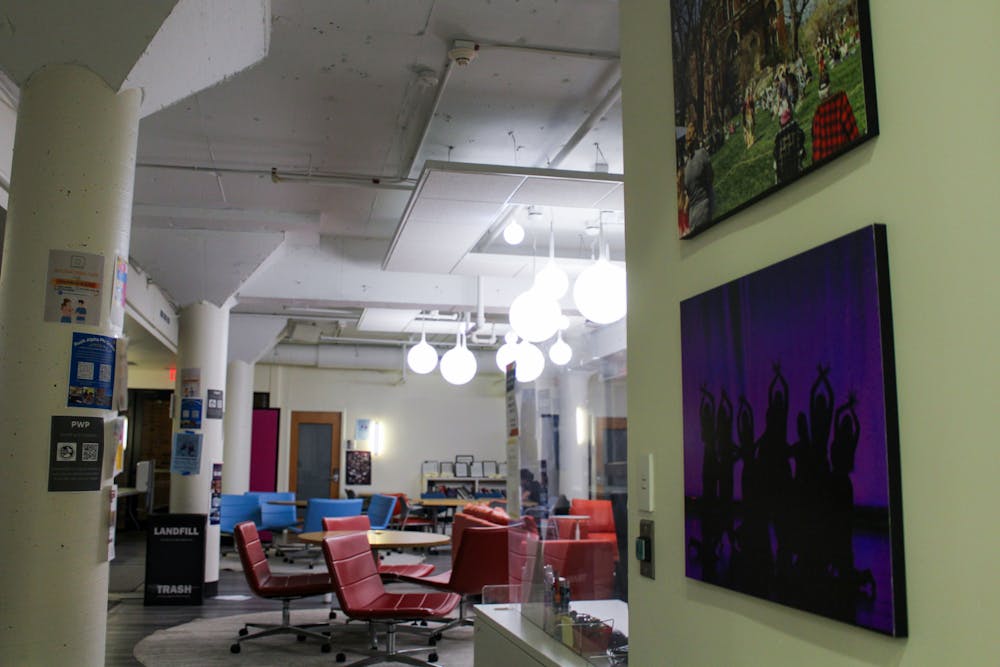The Middle Eastern/North African Mentoring program, a student advising program offered by Multicultural Student Services, was officially revived last fall after five years of dormancy and will continue to recruit students throughout the spring semester. The program, which includes students with Middle Eastern or North African backgrounds, offers academic support to underclassmen and transfer students who are paired with upperclassmen mentors.
Formerly known as the Middle Eastern Mentoring program, the advising program was expanded to include North African students when it was restarted. Daria London, president of the program and fourth-year College student, said she and other executive members felt it was important to expand the organization’s services.
“I thought it was incredibly important to include North African communities too, because that has kind of been this [label] that's used to [refer to] people from the Middle East [and] North Africa — we've been grouped together,” London said. “So we just thought it would be important to give them that option.”
Throughout the fall, the executive board and Multicultural Student Services administrators accepted mentorship applications and began working with students who were interested in being mentees. According to London, 23 students currently serve as mentors, while 33 are mentees. Because the new program is still operating on a smaller scale, mentors and mentees are currently organized into mentorship groups, which are assembled based on academic interest and extracurricular activities.
According to London, this advising program was revived because there was no similar program available on Grounds.
“There are a ton of CIOs for the MENA community, but this sort of institutionalized support that could be continued year by year through Multicultural Student Services was not there,” London said.
Imane Akhanous, director of mentee affairs and second-year College student, echoed a similar statement to London’s.
“We were missing a space to [come together], a program that would help out first year students specifically who come to U.Va. and don't know what's available to them. This program is meant to kind of open doors for them so that they know what resources U.Va. has to offer. And so that they have someone to confide in, and help guide them and mentor them,” Akhanous said.
During the fall, the program also hosted several events for participating students, including a mentor-mentee mixer with catered food and icebreaker games with the goal of allowing participants to form a stronger sense of community within the program. Other events and meetups were decided by mentorship groups.
Akhanous helps run these events and coordinates with mentors and mentees to ensure that they’re receiving the support they need. She said the goal of the events was to make new mentees feel more comfortable within the program and at the University.
“I think as a first year at U.Va., it's definitely a little bit rocky trying to make new friends in a space that you've never quite encountered before. So we just kind of wanted to make sure that [mentees] knew that everyone is there for them and that it's okay to step out of their comfort zone a little bit,” Akhanous said.
Jenine Hamdan, vice president of the program and fourth-year College student, said she looks forward to hosting more events during the spring semester and getting to know more students within the program and the community.
“A lot of time last semester was spent building up the program and establishing the foundation and the structure of things. This semester is going to be more event focused as well as setting up for next year with a more solid structure,” Hamdan said. “I'm excited to get to know all the other [groups] and have more events with my [group]. And also just meeting more people, and establishing stronger bonds.”
In a written statement, mentee Ahmad Nelson, third-year College transfer student, noted that the program has provided him with valuable advice surrounding academic planning as well as an emotional support system.
“The MENA Student Mentoring Club has played a pivotal role in strengthening the bonds within the MENA community at U.Va.,” Nelson said. “The organization of dinners, study group sessions, and various workshops not only enhances individual growth but also serves as a catalyst for community-building.”
Mentorship groups also allow younger second and third-year mentors to receive support and guidance from older mentors, even though they are not technically mentees. In a written statement, Yusuf Sharif, mentor and second-year College student, said that he appreciated the supportive network he gained from the program and discussed his goal to support first years through the program.
“Coming into U.Va., [something] that really helped me was having upperclassmen in positions I wanted to be in that were willing to guide me down the paths they took. I wanted to be in a position that could help first years the way other people helped me,” Sharif said. “[The mentorship program] stood out to me because while I agree with the fact that you should branch out in college, I think it's important to have a community of people that understand you and your culture in a place far from home.”
While discussing the program, London also emphasized its ability to provide representation and support within the community.
“I think we encompass as many identities as we [can]. And I think that's something that's been super powerful and awesome for a lot of the people in our program — to see their identities reflected in that,” London said. “Just having these programs with people from these communities and from these backgrounds being represented is super powerful.”
Members of the executive board said that they hoped to grow the program this spring and throughout the next few years. This includes recruiting and training more mentors, as well as recruiting more mentees. Akhanous said that — in addition to establishing a strong foundation for the program — the current leadership hopes to increase the program to include around 100 mentees in the future.





